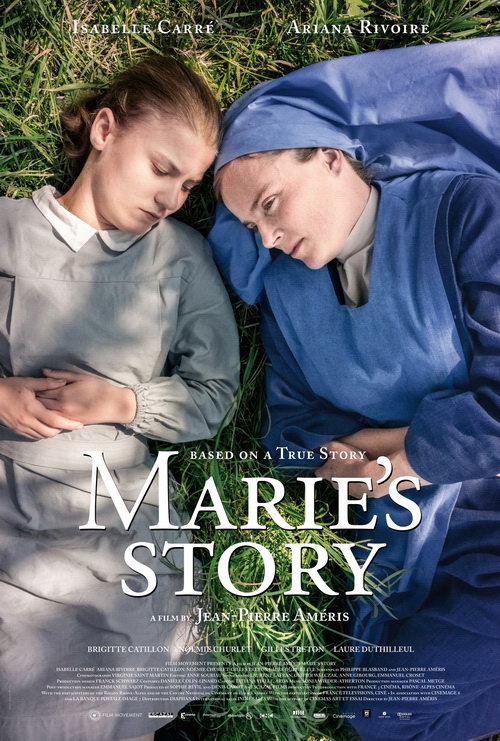As the youngest member in parliament and sole heir to his family's 7,000-acre English estate, Lord Edward Montagu's life was rich and privileged. However, it came crashing down in 1954 when the then-25-year old became England's most infamous aristocrat when he was arrested for homosexual offenses and became the focus of a landmark trial known as “The Montagu Case.” His guilty verdict sent off shock waves and became the catalyst to overturn a centuries old law, but Montagu’s once pristine reputation and career were all but ruined.
This sordid episode as well as the nobleman's eventual, surprising re-ascension in British public life is the subject of a fine new documentary, appropriately titled Lord Montagu. It is newly available on VOD through iTunes, Amazon, Google Play and other streaming sites. After serving a year in prison and discovering he was nearly penniless, Montagu became the first member of the aristocracy to boldly transform his private estate and family home into a public tourist attraction. He created spectacles at his home, most notably Britain's first motor museum, and thus invented a new form of tourism known as “the stately home business.” His showmanship and success inspired a new breed of aristocrats to open their doors and transformed Lord Montagu into a prominent, esteemed and once again wealthy national figure, sort of a UK version of Walt Disney.
Insightfully written and directed by Luke Korem and featuring gorgeous cinematography of Montagu's grounds by Jacob Hamilton and Ricardo Diaz, the film nonetheless utilizes some typically British restraint in its coverage of the Lord's sexuality. He wrote in his eventual autobiography that he had long been attracted to both men and women but went into few details. The most interesting aspect of his case as revealed in the documentary is that the biggest scandal wasn't that Montagu had been having sex with men at the time of his arrest, but that the men he had sex with were of a lower social class. Same-sex relations in 1950's England were apparently more tolerated, at least among their aristocracy, than crossing class lines.
The film's main subject is still alive although he is only briefly glimpsed in the film's modern-day footage. His son Ralph provides considerable commentary, as do numerous personal friends and business associates. In terms of revealing a bisexual man of integrity's rise from the ashes of intolerance, Lord Montagu is a heroic portrayal.
Not aging so well, politically speaking, are the handlers of the 65-million year old beasts currently appearing in Jurassic World. The mega-blockbuster sequel to Steven Spielberg's 1993 mere-blockbuster adaptation of Michael Crichton's novel Jurassic Park, about cloned dinosaurs running amok at an island resort, has several thrilling moments, my favorite being three velociraptors chasing a speeding truck with its unlocked rear doors swinging open and two tasty teenagers in the back.
It actually isn't the dinosaurs who aren't holding up well. The special effects bringing them to cinematic life are better than ever. Rather, it is the retro gender politics employed by screenwriters Rick Jaffa, Amanda Silver, Colin Trevorrow (who also directs, impressively for his first studio movie) and Derek Connolly that are disappointing. Lead female character Claire (Bryce Dallas Howard) is depicted as a career-obsessed perfectionist who has no time for her sister, her two visiting nephews, the hunky dinosaur whisperer in her employ (Chris Pratt) or men in general. It is such a dated caricature, they could have cloned Mildred Pierce-era Joan Crawford to play her and nothing would seem amiss. The three other significant women in the film aren't treated much better. See Jurassic World for its reptilian stars but try to ignore the humans.
Ukrainian filmmaker Miroslav Slaboshpitsky's The Tribe, opening this weekend in Los Angeles, is definitely more forward-looking in setting and style but I was ultimately disappointed by its over-reliance on graphic sex and violence. It is centered on the students attending a special school for the deaf, and subsequently features no dialogue nor subtitles for the signed communications between them and their teachers. The film also doesn't have a music score but it isn't completely silent; natural environmental sound effects are audible throughout.
New arrival Plemya (the hulkingly sexy Grigoriy Fesenko) is quickly recruited to serve as strong arm of the school's underground racketeers. Several older male students, aided and abetted by their shop teacher, use other students to steal for them and even force two female students into prostitution. Cracks begin to form in boys' black market operation once Plemya and one of the girls fall in love with each other.
Slaboshpitsky's risky no-dialogue or -subtitles approach pays off, with the cast members' reliance on facial expressions and emotional exaggeration in addition to their signing easily conveying a scene's meaning to attentive viewers. Cinematographer Valentyn Vasyanovych's extensive, superb use of tracking shots also provides intimacy and immediacy. Its too bad, though, that The Tribe's dark plot grows increasingly off-putting and culminates in a murderous finale. The film proves, once again, that technique isn't everything.
Reverend's Ratings:
Lord Montagu: B+
Jurassic World: B-
The Tribe: C
Review by Rev. Chris Carpenter, resident film critic of Movie Dearest and Rage Monthly Magazine.

















